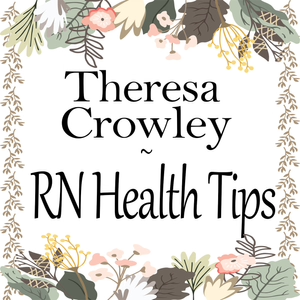
Kasha
Explicit content warning
10/29/20 • 46 min
2 Listeners
Outwardly, Susan Burton had it all—a degree from Yale, a thriving career, a loving husband and kids. Inside, Susan waged a war on herself, using food as a way to exert control over the discomfort she felt in her own skin.
Learn more about your ad-choices at https://www.iheartpodcastnetwork.comSee omnystudio.com/listener for privacy information.
Outwardly, Susan Burton had it all—a degree from Yale, a thriving career, a loving husband and kids. Inside, Susan waged a war on herself, using food as a way to exert control over the discomfort she felt in her own skin.
Learn more about your ad-choices at https://www.iheartpodcastnetwork.comSee omnystudio.com/listener for privacy information.
Previous Episode

The Second Secret
Lindsay Roemer assumed she’d metabolized, and mostly moved on from, the secret that had been kept from her most of her life—until an unexpected Facebook message from a man she’d never met changed everything she thought she knew about her father.
Learn more about your ad-choices at https://www.iheartpodcastnetwork.comSee omnystudio.com/listener for privacy information.
Next Episode

Burning It Down
Nick Flynn was 7 years old when his house burned down. The official story, the one everyone laughed about, was that raccoons had knocked over the family’s Hibachi grill and set the house on fire. Decades later, Nick learned that’s not what happened at all—and started to understand the depth of his mother’s desperation.
Learn more about your ad-choices at https://www.iheartpodcastnetwork.comSee omnystudio.com/listener for privacy information.
Family Secrets - Kasha
Transcript
Family Secrets is a production of I Heart Radio. When I returned to Boulder, my body was different. A summer metamorphosis was a familiar plot line in the y A novels I had once read. Often the teenage girl character transformed by growing breasts or by getting her period, something that advanced her maturity. I felt I'd been forward to even though I turned back the clock, I was no longer menstruating. But if you had glimpsed me on the street, the
Kasha Top Questions Answered
How can I deal with body image issues?
Dealing with body image issues can be challenging, but there are steps you can take. Building a positive body image involves focusing on self-acceptance, surrounding yourself with supportive people, challenging negative thoughts, practicing self-care, and seeking professional help if needed.
What are the different types of eating disorders?
There are several types of eating disorders, including anorexia nervosa, bulimia nervosa, and binge eating disorder. Each disorder has distinct features and requires specific treatment approaches. It's important to consult with a healthcare professional for an accurate diagnosis and appropriate care.
How can I support someone with an eating disorder?
Supporting someone with an eating disorder requires empathy, understanding, and patience. Encourage them to seek professional help, provide a non-judgmental space for them to share their feelings, avoid commenting on their appearance or weight, and educate yourself about eating disorders to better understand their experiences.
Can childhood experiences contribute to eating disorders?
Yes, childhood experiences can contribute to the development of eating disorders. Factors such as family dynamics, parental relationships, traumatic events, societal pressures, and genetic predispositions can all play a role. It's crucial to address underlying issues and seek appropriate treatment.
How can writing help with healing from past traumas?
Writing can be a therapeutic tool for healing from past traumas. By putting thoughts and emotions into words, writing allows individuals to process their experiences, gain insights, and promote self-reflection. It can also provide a sense of empowerment and help break the silence surrounding difficult topics.
Can sharing a secret improve relationships?
Sharing a secret can indeed improve relationships. It fosters trust, vulnerability, and deeper understanding between individuals. Opening up about personal experiences allows for greater emotional connection and can lead to increased support and empathy from others.
How can I cope with panic attacks?
Coping with panic attacks involves various strategies. Deep breathing exercises, practicing mindfulness, engaging in relaxation techniques, seeking professional therapy or counseling, and developing a self-care routine can all be helpful. It's important to remember that everyone's experience is unique, so finding what works best for you may require some exploration.
What should I do if I suspect someone has an eating disorder?
If you suspect someone has an eating disorder, approach them with empathy and concern. Express your worry about their well-being and offer resources for support, such as recommending they seek professional help or providing information on helplines or support groups. It's crucial to be aware that recovery from an eating disorder may require professional guidance.
Can writing a memoir be therapeutic?
Writing a memoir can be a cathartic and therapeutic process. It allows individuals to reflect on their experiences, gain insights, and find closure. Sharing personal stories through writing can also provide comfort to others who may relate to similar struggles.
How can I find support for my own family secrets?
Finding support for your own family secrets can start by seeking out supportive communities or online forums where individuals share similar experiences. Connecting with therapists or support groups specializing in family secrets can also provide guidance and validation. Sharing your story with trusted friends or loved ones can be a crucial step in finding support and understanding.
Show more Questions

Show more Questions
If you like this episode you’ll love
Episode Comments
Featured in these lists
Generate a badge
Get a badge for your website that links back to this episode
<a href="https://goodpods.com/podcasts/family-secrets-11592/kasha-9239495"> <img src="https://storage.googleapis.com/goodpods-images-bucket/badges/generic-badge-1.svg" alt="listen to kasha on goodpods" style="width: 225px" /> </a>
Copy





